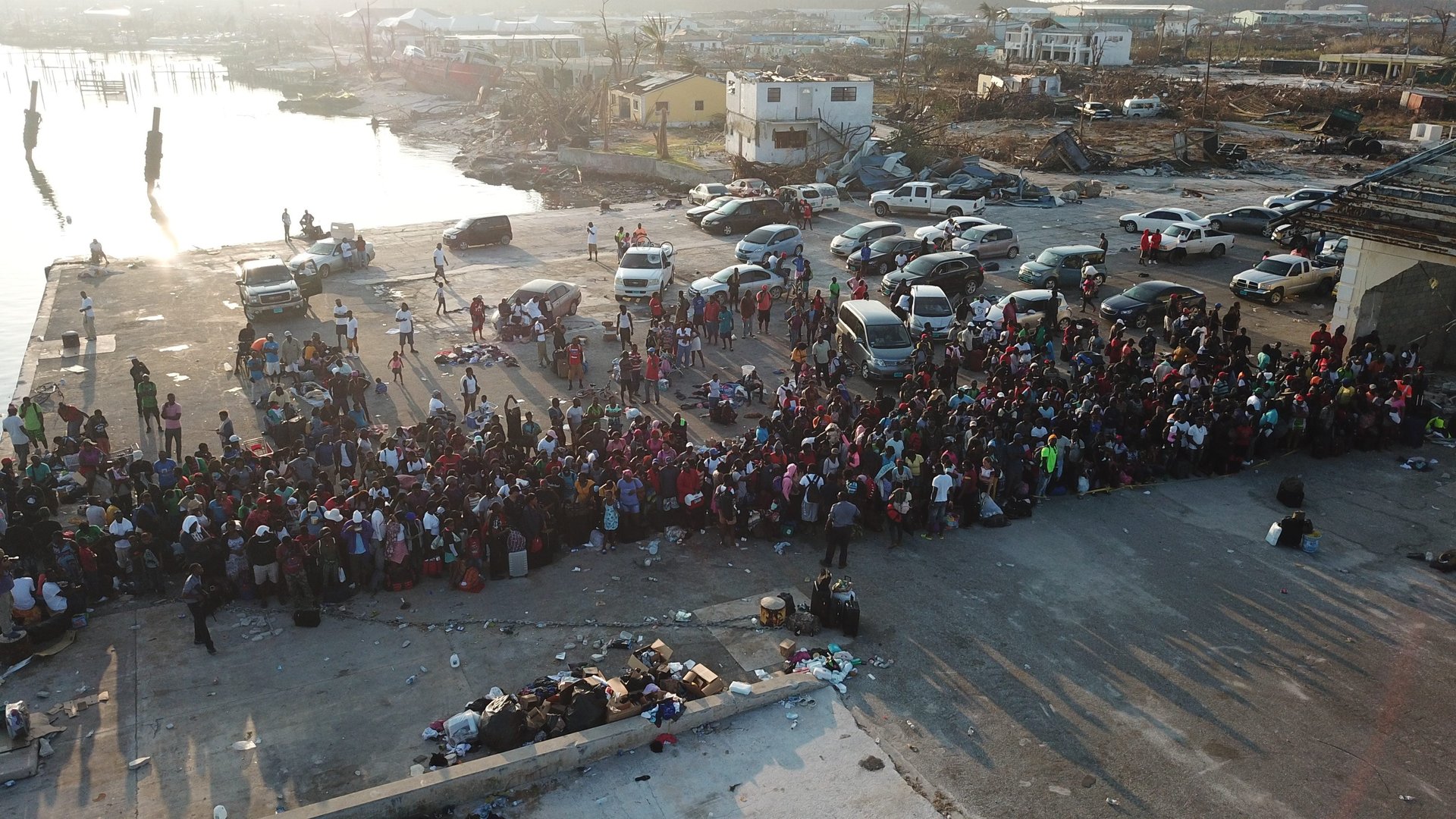The Bahamas ferry confusion is the perfect encapsulation of America under Trump
On Sept. 8 more than a hundred survivors of Hurricane Dorian were asked to disembark a ferry traveling from the Bahamas to Florida because they lacked a US visa. Among them were families traveling with small children.


On Sept. 8 more than a hundred survivors of Hurricane Dorian were asked to disembark a ferry traveling from the Bahamas to Florida because they lacked a US visa. Among them were families traveling with small children.
The news spread quickly, sparking a mix of concern and outrage that the US was rejecting people fleeing the aftermath of a major disaster, and that it had changed its policy regarding the documents Bahamians require to travel to America. Democratic presidential candidate Beto O’Rourke leaped at the opportunity to score some points, calling the rejection of evacuees “the height of cruelty,” and attributing responsibility to the White House.
In the end, the whole episode was a little more nuanced than that. And the uncertainty around what exactly happened and why, and the reaction to it, is a telling example of how US President Donald Trump’s zero tolerance immigration policies are both generating confusion at the southern border and stoking partisan fires.
The ferry operator later apologized for asking the Bahamians to disembark, but added that he was told by US immigration authorities that without a US visa they would need further approvals before heading to the US. Normally residents of the Bahamas can travel to the US freely as long as they don’t have a criminal record. Customs and Border Protection (CBP) officials initially blamed the ferry operator for not coordinating the evacuation with American authorities. Later, however, acting CBP commissioner Mark Morgan said that it was all just a case of “some confusion.”
“[W]e are not not telling the cruise line that you cannot allow anyone without a document, that is not being done,” Morgan said. He added that people evacuating the Bahamas who don’t have visas will be given expedited processing and waived fees. “We will accept anyone on humanitarian reasons that needs to come here.”
And then, weighing in on the subject with his usual xenophobic rhetoric, Trump said immigration authorities needed to be careful because there are some “very bad people and some very bad gang members and some very, very bad drug dealers” in the Bahamas, which seemed to indicate the US would require further scrutiny of anyone fleeing the aftermath of Dorian’s apocalyptic fury.
If you are in the Bahamas you might be a little unclear on just what to expect when you try to leave. And since the administration hasn’t decided whether or not it will extend Temporary Protected Status—a provision that allows certain groups of people to stay in the US for a limited amount of time—to citizens of the Bahamas, the confusion will likely continue.
Meanwhile, the reaction to the episode—the social media uproar, media reports, and widespread anger—revealed a few things about the current partisan nature of the immigration debate in the US.
First, many Americans now expect cruel immigration measures to come from the Trump administration. After numerous reports exposed the inhumane treatment of children and asylum seekers in border detention facilities, it’s not a stretch to think the administration would deliberately reject hurricane survivors. In fact, such a measure would be consistent with the administration’s record: It already rolled back other protections for disaster victims, including ones for Haitian refugees.
Second: Trump won’t miss any opportunity to make immigration a partisan issue, and people react to it accordingly.
Third: People are paying attention.
Shana Kushner Gadarian, a professor at Syracuse University, and co-author of Anxious Politics: Democratic Citizenship in a Threatening World, told Quartz the fact that Trump has turned immigration into such a partisan issue has likely increased support for immigrants among many Americans. “On the whole, people’s attitudes have become more supportive of immigration,” Gadarian said.
Gadarian said there is a risk that the relentless policy changes coming from the Trump administration could normalize cruelty to immigrants. But the reactions they continue to generate (including movements such as “Never Again is Now”) seem to suggest people are still far from numb.
In a way, being supportive of immigrants has become a fundamental liberal or moderate trait in a way that wasn’t prior to Trump—and episodes like the ferry incident, whether it was all just a misunderstanding or not, shows exactly how charged any issue related to immigration can become.